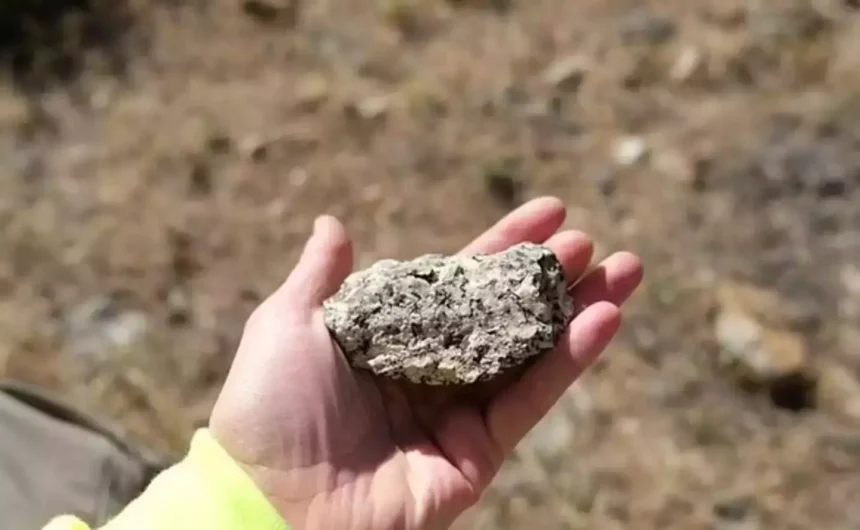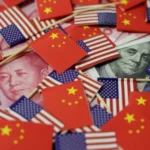As geopolitical tensions escalate, Australia is positioning itself to counter China’s dominance in the rare earth market. Prime Minister Anthony Albanese has pledged to invest A$1.2 billion (£580 million) in a strategic reserve for critical minerals if his government wins next month’s election. This announcement comes after China imposed export restrictions on seven rare earth elements, vital for the production of high-tech products such as electric vehicles, fighter jets, and advanced robotics.
These restrictions, which impact all countries, are widely seen as a retaliatory measure against U.S. tariffs imposed during the Trump administration. While these moves send ripples across global supply chains, Australia’s plan aims to challenge China’s dominance over the rare earth industry, a crucial step in reducing reliance on Beijing for high-tech materials.
What Are Rare Earth Minerals and Why Are They Crucial?
Rare earth elements, a group of 17 metals, are critical for technologies shaping the future, including electric vehicles (EVs), renewable energy systems, and military technology. While their name suggests scarcity, rare earths are not particularly rare but are difficult to extract and refine, which makes them challenging to procure. Elements like samarium and terbium are indispensable in manufacturing everything from mobile phones to fighter jets.
Albanese’s proposed strategic reserve is set to include rare earths along with other vital minerals like lithium and cobalt, of which Australia is a leading producer. Despite these reserves, China controls 90% of the world’s rare earth refining, giving it significant leverage over global supply. This has raised alarms, particularly among Western nations, who are keen on diversifying their supply chains to ensure security.
Why Is China Restricting Rare Earth Exports?
China’s export restrictions on rare earths are widely viewed as a response to the trade war between China and the U.S., particularly following Trump’s implementation of steep tariffs on Chinese goods. According to the U.S. Geological Survey, China supplied around 75% of U.S. rare earth imports between 2019 and 2022, leading to concerns in Washington about securing reliable access to these vital minerals.
Philip Kirchlechner, director of Iron Ore Research in Perth, Australia, highlighted the strategic importance of rare earths, stating that China’s control over their refinement puts it in a powerful position to influence both U.S. and European defence systems. This influence is felt in industries like electric vehicles, with Tesla CEO Elon Musk recently citing how China’s export halt on advanced magnets is affecting the company’s development of humanoid robots.
Could Australia’s Proposal Shift the Balance?
Albanese’s plan to create a strategic reserve is seen as a crucial step in reducing Australia’s dependence on China for critical minerals. The reserve would be available for both domestic industries and international partners, potentially strengthening Australia’s position as a key supplier to the U.S. and the European Union. However, while the initiative is welcomed by many experts, some argue it does not address the core issue: refining.
Despite Australia’s wealth of natural resources, China remains the dominant force in the refinement process. For example, Australia mines 33% of the world’s lithium, essential for EV batteries, but only refines a small portion. In contrast, China mines just 23% of global lithium but refines 57%, according to the International Energy Agency. This gives China unparalleled control over global supply chains, particularly in sectors vital for the green transition and defense technologies.
Australia has been making strides to address this, with significant investments in rare earth refining. A$840 million was allocated to Arafura Rare Earths in 2022 to build the country’s first combined mine and refinery. Additionally, Lynas Rare Earths opened Australia’s first rare earth processing plant in November 2023. However, experts predict that Australia will continue to depend on China for refining until at least 2026, according to the Centre for Strategic and International Studies.
How Will the U.S. and China Respond?
China’s export restrictions have not gone unnoticed in the U.S., with Washington looking to secure alternative sources of rare earths. China’s ambassador to Australia has criticized U.S. trade policies and urged Australia to align more closely with Beijing. However, Albanese has firmly rejected this suggestion, positioning Australia as a vital ally to the West, particularly in the context of the ongoing strategic rivalry between the U.S. and China.
Australia’s critical mineral reserves are likely to become a key bargaining chip in future trade negotiations. Alicia García-Herrero, chief economist for Asia-Pacific at Natixis, explained that Australia’s ability to sell its reserves in times of economic tension could help reduce global mineral prices and undermine China’s pricing power. Despite this, she cautioned that Australia cannot fully replace China’s role in the refining process.
In the End
As China tightens its grip on the rare earth market, Australia’s proposed strategic reserve could help reduce Western dependence on Beijing for critical minerals. However, the long-term success of this plan will depend on Australia’s ability to develop a robust refining infrastructure, which currently remains dominated by China. In the battle for global supply chain dominance, the future of rare earths could prove pivotal for industries ranging from electric vehicles to defense systems.
For more business news click here.






